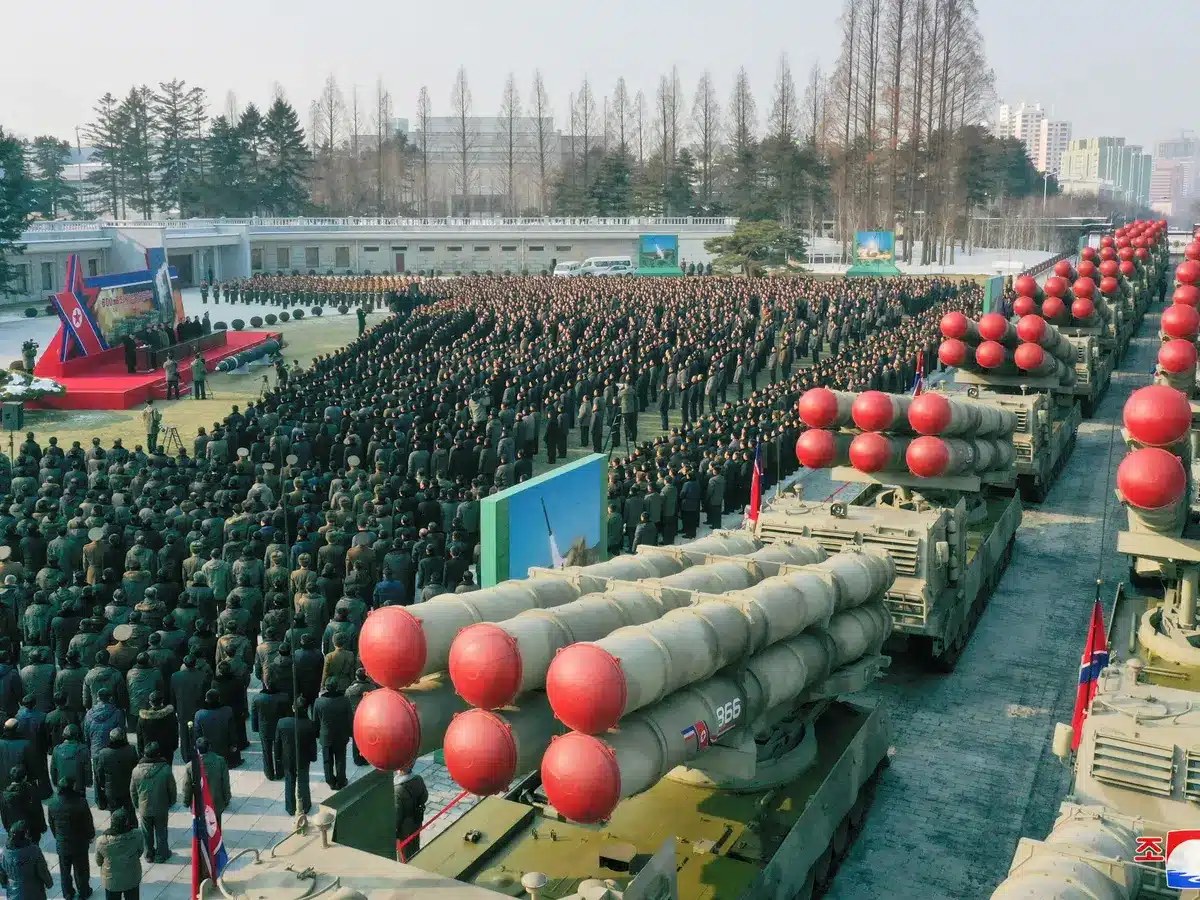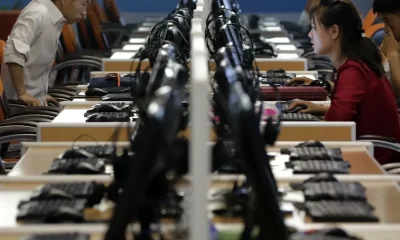News
North Korea’s New Reactor At Nuclear Site Likely To Be Formally Operational Next Summer, Seoul Says

South Korea’s SEOUL — South Korea’s defence minister said a light-water reactor at North Korea’s main nuclear complex would likely be formally operational by next summer, amid fears that the North may utilize it as a new supply of fissile materials for nuclear bombs.
Concerns over North Korea’s nuclear program have lately grown as the United Nations Atomic Energy Agency and foreign analysts reported finding evidence that North Korea has begun operating its light-water reactor at the Yongbyon nuclear complex.
Last week, IAEA Director General Rafael Grossi stated that his organization has noticed increasing levels of activity at and near the reactor and a strong water outflow from its cooling system since mid-October. He called the reactor “a cause for concern” since it can create plutonium, one of the two primary elements required to make nuclear weapons, along with highly enriched uranium.
According to the South Korean Defense Ministry, Defense Minister Shin Wonsik told local reporters the day before that his country had also observed similar cooling system-related activity associated with the reactor last summer.
Shin stated that the reactor appears to be in the trial phase and is projected to be operational by next summer.
North Korea has long generated weapons-grade plutonium at its well-known Yongbyon 5-megawatt reactor. The light-water reactor would provide another source of bomb fuel, and observers believe its larger capacity would allow it to manufacture more plutonium. Yongbyon also has a uranium enrichment facility.
There are concerns regarding the reactor’s claimed operation because light-water reactors are best suited for generating power. Shin pointed out that no government has ever used light-water reactors to generate weapons-grade plutonium. Many experts believe North Korea may modify one at Yongbyon to create weapons-grade plutonium.
“(North Korea’s) commissioning of a new light water nuclear power plant raises serious concerns, including safety,” the U.S. Mission to the United Nations in Vienna said in a message posted on X, formerly known as Twitter, on Saturday. “(North Korea’s) unlawful nuclear & ballistic missile programs continue to pose a grave threat to international peace & security.”
Grossi also stated that the North’s functioning of the light-water reactor violates United Nations Security Council resolutions.
North Korea’s New Reactor At Nuclear Site Likely To Be Formally Operational Next Summer, Seoul Says
The IAEA and international governments use satellite photography and other technologies to monitor operations at Yongyon and other suspected nuclear facilities in North Korea. In 2009, the North barred IAEA investigators from entering the country.
Outside estimates range from 20-60 to more than 100 nuclear weapons in North Korea’s arsenal. According to experts, North Korea can add six to 18 bombs per year.
North Korean leader Kim Jong Un has frequently pledged to build more nuclear weapons and introduce high-tech weapons in response to what he calls rising U.S. hostility since his talks with the U.S. faltered in 2019.
North Korea’s New Reactor At Nuclear Site Likely To Be Formally Operational Next Summer, Seoul Says
Foreign experts believe Kim will eventually try to use his enlarged nuclear weapons to gain sanctions relief from the United States once diplomacy starts.
In response to the North’s latest intercontinental ballistic missile launch last week, the United States, South Korea, and Japan encouraged other countries to properly enforce U.N. Security Council resolutions imposing harsh sanctions on the North for previous prohibited weapons tests.
SOURCE – (AP)











































